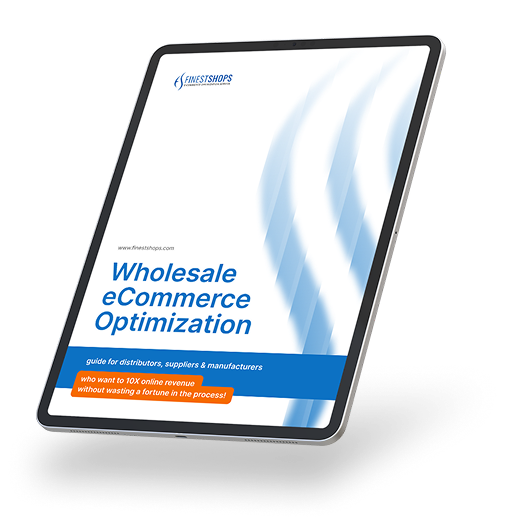Online stores are built using eCommerce platforms, such as Shopify, Magento, or Wix. Every platform has different strengths, weaknesses, setup costs, and a library of apps (with various functionalities). Some platforms are better suited for certain business types (and goals) than others.
Your choice of platform will heavily influence the success of your store and, by extension, the profitability of your business. As such, you must do your research and pick the platform that’s best suited to your goals. Today, FinestShops outlines the top 5 eCommerce platforms on the planet and gives you some insight into choosing the best one.
Shopify – Clean and Simple
Build feature-rich, beautiful stores quickly
Suitable for non-technical users
SaaS subscription model with reasonable pricing
Shopify is the world’s biggest eCommerce platform in terms of revenue. It’s used by millions of businesses worldwide and has been around for a long time. As such, it’s very well-supported, regularly updated, PCI-compliant, has extensive features, and integrates with over 4,000 apps. Furthermore, Shopify is intuitive and easy to set up – even if you don’t have a coding background. Shopify works for stores of all sizes (albeit with limited functionality for larger stores), provides hosting, and offers plans ranging from $38 to $389 per month.
WooCommerce – Easy Integration with WordPress Websites
Can easily integrate with WordPress websites
Free to download and use, being open source
Extensive customization options
WooCommerce is an open-source (free), powerful extension for WordPress websites. As WordPress is the most popular CMS (website-building tool) on the planet, WooCommerce is enormously popular as well. The biggest advantage of WooCommerce is that it can turn any WordPress-based site into an eCommerce store. Also, being WordPress-based, it shares many of the platform’s strengths – extensive blog-content support, countless customization options, many free third-party apps, and more. You only need to pay for hosting (which can be as cheap as $5 per month).
Magento (Adobe Commerce) – The Enterprise-Grade Solution
Suitable for giant eCommerce stores with massive catalogs
Extensive functionality (coupled with high complexity)
Works with Adobe software and progressive web apps (PWAs)
Magento is best known for being a “heavy duty” eCommerce solution, meaning it’s primarily used by big companies (more than $1 million in revenues per month). The biggest advantage of Magento is that it supports massive product inventories, is super scalable and is extensively customizable. Furthermore, it can make PWAs, which gives it several advantages, as Gomage can confirm. Unfortunately, it’s not very beginner-friendly. You will likely have to pay a team of developers to build, maintain, and upgrade your store – which can be extremely expensive in the long run.
BigCommerce – For Mid-to-Large Scale Stores
Zero transaction fees and unlimited bandwidth
Good customer support
Reasonable pricing and solid features
BigCommerce is a SaaS platform. You pay a monthly fee to use it, as well as an additional fee for any paid apps that you might need for added functionality. In return, you get a flexible platform that can support an array of store types, solid customer support, absolutely no transaction fees (some platforms charge as much as 2 percent), and access to an extensive array of apps. Prices range from $29.99 per month to $299.95 per month (more for enterprise plans).
Wix eCommerce – Get Up and Running in Minutes
Very easy to get up and running
Modern templates and design
Low-complexity environment
Wix is primarily a drag-and-drop website-building tool made to allow anyone without any technical knowledge to build fully functional websites in minutes. The eCommerce version of Wix, similarly, allows you to build a store in as little as an hour, going by a Website Planet tutorial. The biggest advantage of using Wix is that it’s low complexity, comes with nice-looking templates, and supports a decent selection of plugins. For the eCommerce version, you need to pay a fee that ranges from $27 to $59 per month.
Conclusion
Keep in mind that eCommerce platforms are constantly changing and being updated, meaning the takeaways above may not hold in the future. When you’re having trouble deciding which platform to choose, you can always consult with an experienced web development team who has built several e-shops before – they should be able to help you make an informed decision. Last, but not least, do a quick ROI analysis before settling on a platform.
If your business currently operates on WooCommerce or Magento, visit FinestShops today to see how we can help you supercharge your ROI and advertising!

